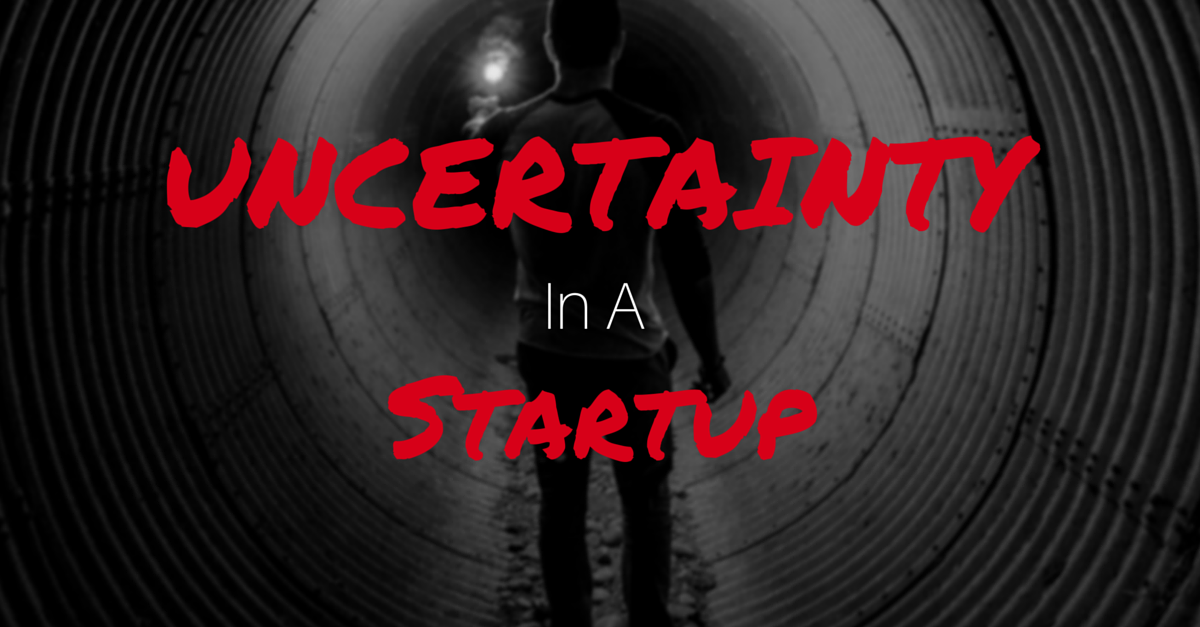About a week and a half ago, we published an article titled ‘How to Win at Employee Engagement as a Startup (and Not Spend a Dime).’ The post was well-received in a few Google+ and LinkedIn groups we shared it to.
Riding on that positive feedback, I went ahead and took a summarized version of the post to Reddit’s r/entrepreneur subreddit – and it was here I would get a glimpse of the most interesting sentiment the post would spark in its short lifecycle.
On the surface, things were looking up for out little Reddit submission, receiving 86% upvotes from those who happened upon it… but then the comments started to get interesting.
By interesting, I mean that they took a turn for the critical. Personally, I invite criticism; the day you become too arrogant to learn from critique is probably the same day your business prowess shrivels up and dies.
More interesting than criticisms of my writing style, however, were some thoughts that arose on the role of uncertainty, inefficiency, and adaptability in startups, some points I thought might be worth talking about.
It all started with some constructive feedback on goal setting and employee engagements by ‘hamtownsnackers’:
Fair points, hamtown, fair points indeed.
In response, a user who’s clearly crushing it in the will-appear-first-in-an-alphabetic-listing-competition game offered up their two cents:
They were probably right, I could have gone into more detail about specific strategies in that post; I pressed them for more, when an interesting breadcrumb fell out of 11111aaaaa’s metaphorical pocket:
Wait a minute… You can roll your eyes at my writing all you like, but implying that startup employees are those who “couldn’t get a job anywhere else”? I resemble that remark! And I’m going to have to disagree there, fella.
Luckily, I wasn’t the only one with this thought:
To be honest, I think we’re all intelligent enough here to know that startup teams are, by and large, made up of incredibly talented people, and that point probably doesn’t need any additional servicing.
What was more interesting to me was the hints at the uncertainty of working within a startup, particularly the part about:
Startups definitely lose a lot of time/efficiency/productivity due to a lack of processes and clear expectations, but that environment also leads to advantages (i.e. being able to make rapid improvements).
Lack of efficiency, processes, and clear expectations? Yikes!
It sounds pretty bad, but is it?
Well, yes; an excessive degree of uncertainty isn’t a great thing to have in a young company. And the establishing of clear processes over time can only help to boost efficiency.
But in the beginning, are those the most important things for a startup?
Maybe, but I think there’s a silver lining to uncertainty in startups:
Flexibility.
One of the greatest assets of a young company, especially a startup focused on rendering impressive product market fit and feeling out initial results in order to drive investment, is its ability to pivot.
The flexibility in startups, from the responsibilities of individuals and their day to day activities, to a target market, all the way up to the overall direction of the company, is a plus, at least in some scenarios.
Without a doubt, when weighing job offers before coming to Responster, I was heavily influenced by the freedom and responsibility offered by a startup.
Just as our last Reddit reply put it, however, some people thrive in it and some people struggle – most probably do a lot of both.
Some days you drown in it, some days you kick ass with it, but as long as the latter outnumber the former, it can be a refreshing way to approach the running of a business.
For example…
The past few weeks, I’ve been really heads down in the content marketing side of our brand spread strategy: Writing blog posts, sharing them, engaging with other marketers/startups, working guest posting angles, etc.
Right up until our CEO alerted me to his concern over the fact that our webmaster tools were reporting 171 broken links on our website.
Whoops.
See, several months back, the company website made the swap from WordPress to a completely custom designed solution. A lot of links to old pages broke in the migration.
Was it the end of the world? Maybe not, but was it doing us any favors in terms of SEO and residual traffic? Heck no.
Lucky for us, a healthy dose of startup flexibility came to the rescue, and our lead developer and I have spent the last few days on a much needed campaign to restructure the website and fix all of our ugly 404’ing links.
No fuss, no delegation, just jumping to a new task and hustling to get it done as quickly as possible.
Will working this way last forever? Of course not, and we wouldn’t want it to, it’s not scaleable. But there’s something to be said for embracing agility while you have it, and finding employees that are drawn to, rather than intimidated by, such a prospect.
Personally, I think I’ll look back someday and miss the times where everyone did everything and priorities could do an about face in a single afternoon. At least, I’ll miss them in that “how fun, but let’s never do it again” kind of way.
How do you balance efficiency and flexibility in your startup? Do you view the adaptiveness and diversity of responsibilities found in a startup/small company to be useful? A hindrance?
Drop a comment and let me know; we certainly don’t have all the answers on this one, so we’d love to hear your thoughts.
– Brandon
Brandon Landis is the Chief Customer Success Wizard (CCSW) and Community Manager for Responster, the cross-platform survey tool that helps businesses make smart decisions.




